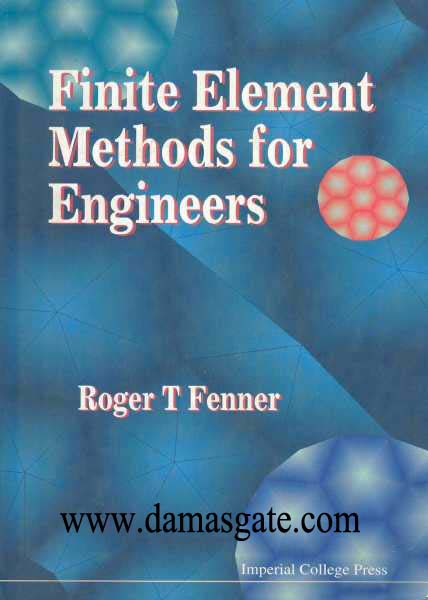Finite Element for Engineers

Preface
The advent of high-speed electronic digital computers has given tremendous impetus to all numerical methods for solving engineering problems. Finite element methods form one of the most versatile classes of such methods, and
were originally developed in the field of structural analysis. They are, however, equally applicable to continuum mechanics problems in general, including those
of fluid mechanics and heat transfer. While some very sophisticated finite element methods have been devised, there is a great deal of very useful analysis that can be performed with the most straightforward types, which are simple to understand and formulate.
The teaching of finite element methods has hitherto been largely confined to university postgraduate courses, particularly those concerned with structural analysis in civil or aeronautical engineering. The purpose of this book is to serve as an introduction to finite element methods applicable to a wider range of problems, particularly those encountered in mechanical engineering. The main emphasis is on the simplest methods suitable for solving two-dimensional problems. Since computer programs form an integral part of the finite element approach they are treated as such in the text. Several programs are presented and described in detail and their uses are illustrated with the aid of a number of practical case studies.
This book is based on courses given by the author to both undergraduate and postgraduate students of mechanical engineering at Imperial College. A prior knowledge of the FORTRAN computer programming language is assumed. The level of continuum mechanics, numerical analysis, matrix algebra and other mathematics employed is that normally taught in undergraduate engineering courses. The book is therefore suitable for engineering undergraduates and other students at an equivalent level. Postgraduates and practising engineers may also find it useful if they are comparatively new to finite element methods.
The author wishes to thank Miss E. A. Quin for her very skilful typing of a difficult manuscript.
Imperial College of Science and Technology, ROGER T. FENNER
London
Finite Element Methods for
bngineers
n 0
Roger T Fenner
Department of Mechanical Engineering Imperial College of Science, Technology and Medicine London
Download
http://s18.alxa.net/s18/srvs2/01/Fin....Engineers.rar